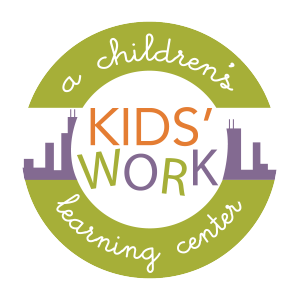This is a continuation of the article “Tips for toddlers that bite – Part 1”.
As stated previously, there is a wide variety of reasons children may bite. Observe the situation and try to understand why the child might be biting so you can help them develop better ways of communicating to replace the behavior.
Here are some more reasons an infant or toddler may bite and what you can do to help curb the behavior:
-
For Attention
If the biter is an older kid, biting can be a way of acting out to get attention – even negative attention is good for some kids.
What can you do?
- After addressing what happened and calmly stating that it is unacceptable, turn your attention to the child who was bitten, rather than the biter.
- Later, after the biting incident has passed, spend a little extra time or effort with the biting child and find out what needs aren’t being met.
-
Communicating/expressing difficult feelings like anger or frustration
Biting can be like hitting for some kids who haven’t yet learned to express their feelings and desires effectively through words. If they’re frustrated, angry, stressed, confused or scared and don’t know how to fix or address it quickly, biting may be the quickest, most effective way to change the situation (if there are too many people, too close and making them feel cramped or stressed out, nothing will disperse them faster than teeth being sunk into skin!). Biting can get back their toy, tell a classmate to back off, or tell you they’re unhappy.
What can you do?
- Try to guess your child’s need or want and put it into words for him, with an appropriate way of trying to get what he wants (Example: say, “Johnny, do you want to play with the stuffed bear now? You can ask Jeff, ‘Can I have my turn now?’”)
- Teach them words for their feelings and better ways/alternatives to act them out
-
Lack of language skills for positive things as well
And not all the missing language (such as words for “I’m really mad”, “Back off”, “It’s MINE”) is for bad communication – biting can also be used to convey the messages of, “I’m really excited!” or “I want to play with you!”
What can you do?
- Provide positive reinforcement when your kid gets it right with words instead of teeth. “You asked for the stuffed bear instead of biting Jeff. Good job, it’s your turn now.”
-
Over-excitement or stimulation
Too many sounds, lights, people, or too much activity level can trigger biting
What can you do?
- Keep TV and radio at low volumes, or turned off
- Make a quiet place in the house or room they can retreat to and take a break if they need, with books, pillows, stuffed animals and calm, soothing things. Tell them this is where they can go if they want to be alone or need to cool down.
-
Imitating other kids or adults
A good reason to nip this in the bud, no pun intended, whenever necessary
What can you do?
- Stay vigilant around your kid and other kids
- Gently demonstrate and teach better ways to achieve whatever they observed the biter trying to achieve
-
Self-Defense
This one, while obvious, hopefully isn’t needed very often.
What can you do?
- Keep an eye on what other kids are doing too
- Teach them to come get an adult right away if they need help
-
Communicating basic needs or wants (like hunger or fatigue)
If they’re hungry or fatigued and need sleep, the chompers may come out.
What can you do?
- Make sure your schedule is adjusted so they eat and nap before extreme hunger or fatigue becomes a problem
- Don’t do playdates or stressful, busy activities for a day if they are already very tired
Most biting is just a developmental phase in a child’s growth and learning, and not something to place blame for, whether on the child, parents, or caregivers. A child who bites is not a monster or a bad kid, and labeling them a “biter” can be harmful in a self-fulfilling prophecy sort of way, so try to avoid seeing or calling them as such, and just address the behavior as necessary when it occurs.
Not all kids bite, but some studies show that up to a quarter of kids will do it at some point, and many are otherwise gentle, sociable kids. After they turn 3, kids should have the necessary communication skills and self-restraint to be rid of the behavior, and if the child is still frequently biting people, it may indicate other behavior problems that may need to be handled by a professional.
For most kids though, biting is usually just a normal phase that will pass with the right guidance.


